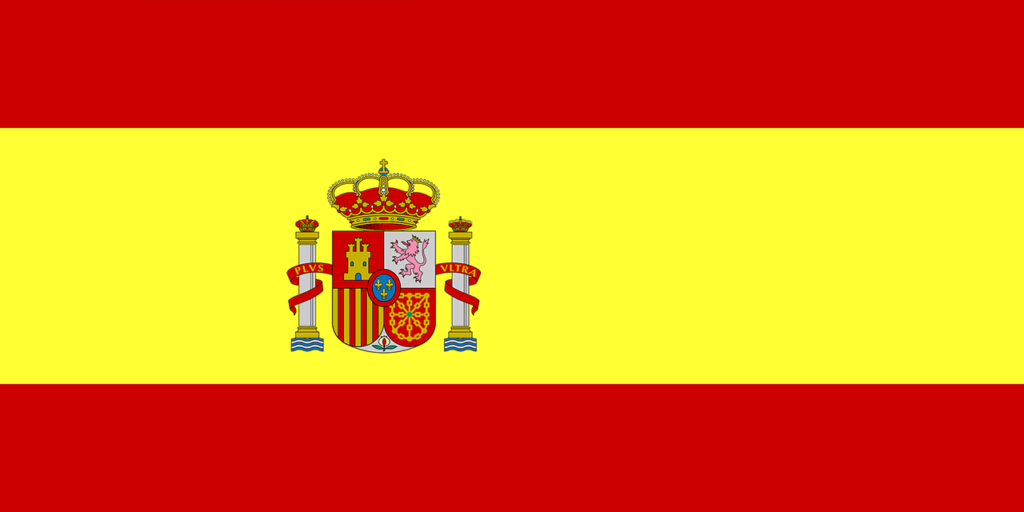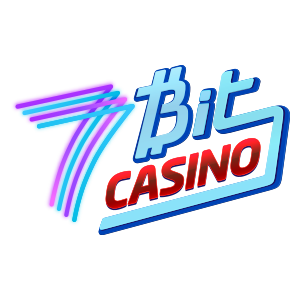
Spain Gambling Regulations
Table of contents
Gambling Regulations for Online Casinos in Spain
When most people think of Spain, they imagine old churches, bullfighting, brilliant vistas, and some of the best small plate food you can find anywhere in the world. However, Spain is also home to plenty of gambling options, both online and in-person. In fact, Spain is one of the few European countries that has a fully-regulated gambling industry.
So, whether you're visiting this gorgeous region or you live there, here is everything you need to know about online gambling regulations in Spain.
A Brief History of Online Gambling in Spain
As with other European countries, Spain's love-affair with gambling starts hundreds of years ago. When the Romans came to the peninsula, they brought plenty of games of chance, including dice, cards, and others. The Spanish people fell in love with gambling, and the Spanish crown fell in love with collecting taxes on it.
However, in 1387, all gambling was banned in the country, presumably as a way to “purify” the populace. Many other countries have tried (and failed) to prohibit gaming of all kinds in an attempt to remove the sinful temptation.
Spain was a bit more successful than most since the prohibition lasted until the mid-1800s. Even then, the only gambling allowed was the state lottery, founded in 1821. The lottery became extremely popular throughout the rest of the century, with other games coming into the country. Another ban was instituted in 1922, which resulted in the closing of all gambling houses and casinos. The Spanish Civil War didn't help matters, as the country had to deal with Francisco Franco until he died in 1975.
After Franco's death, the country became more democratic, and gambling laws were back on the table. In 1977, the government legalized all gaming and expanded the law to include slot machines in 1981. Spanish gambling thrived during the 80s and 90s, and when online casinos came into the fold, the country didn't really do much to regulate the industry.
That all changed in 2008 with the economic crash. Before then, Spaniards were spending up to 14 billion Euros a year on slot machines alone. By 2011, that amount shrank to less than 10 billion Euros. In 2011, the government amended the Royal Decree of 1977 to include online gaming.
Not only was the new law designed to address new challenges for both operators and players, but it created the Directorate General for the Regulation of Gambling (DGOJ). Previously, all licensing and regulations were handled by the Lottery and Gambling Agency, which was itself a division of the Ministry of Economy and Finance. Another aspect of the law was to create a cohesive regulatory body since the 17 provinces each had their own rules before then.
Currently, Spain boasts over 60 casinos plus seven racetracks and over 250,000 slot machines. Online casinos are just as ubiquitous as the DGOJ grants 10-year licenses to operators. Here is a rundown of essential dates in Spain's gambling history:
- 1387 – All gaming is outlawed throughout the country.
- 1821 – The first state lottery, Sorteo Extraordinario de Navidad, is introduced.
- 1922 – All gambling is re-outlawed, and casinos are shut down.
- 1977 – The new Democratic government decriminalizes gambling for games of skill (not luck).
- 1981 – Games of chance are also decriminalized.
- 2008 – Economic crash sends Spain's gambling industry into a tailspin.
- 2011 – The Spanish Gaming Act is passed, which creates the Directorate General for the Regulation of Gambling.
Is Online Gambling Legal in Spain?
Yes, all online gambling is legal in Spain, thanks to the Spanish Gaming Act of 2011. One primary element of the act was to create a centralized regulatory body to make it easier for casino operators and players to gamble online. Before 2011, all casino websites were regulated by one of Spain's 17 autonomous zones. This disparity meant that it was difficult to know which laws were in effect for each location since individuals could log on from anywhere in the country.
Gambling Regulations for Online Casinos Spain
Here is a breakdown of the regulations related to online gambling and what they entail.
Spanish Gambling Act of 2011
This act sought to regulate online casinos within the country and provide a standardized list of rules and laws for operators and players. The Gambling Act created the Directorate General for the Regulation of Gambling (DGOJ) to oversee these new changes.
State lotteries that were previously managed by the Lottery and Gambling Agency now fell into the DGOJ's jurisdiction because these games crossed the borders of Spain's 17 autonomous zones. While each zone could still dictate specific rules regarding land-based gambling, they now had to defer to the Directorate for anything related to online casinos.
The Gambling Act divided gaming into three licensing categories: bets, contests, and other games. Online websites have to apply for a general license and a specific singular license for each of the following games or betting strategies:
- Bingo
- Blackjack
- Roulette
- Baccarat
- Poker
- Slots
- Complimentary Games
- Fixed-Odds Betting
- Fixed-Odds Sports Betting
- Fixed-Odds Horse Betting
- Sports Pool Betting
- Horse Pool Betting
- Exchange Betting
These categories cover pretty much every version of online gambling, but if an operator doesn't fit into one of these classes, they won't get approved.
The DGOJ has approved more than 70 online casinos since 2011, although some of them have shuttered because they failed to uphold the law. To get approval, a company must follow these requirements:
- Be a public limited company or a limited liability company (LLC).
- Be based in Spain or another European Economic Area (EEA) member state.
- Have the sole purpose of organizing and operating online gambling activities.
- The operator's website has to direct to a .es extension.
Once approved, general licenses (i.e., bets, contests, or other games) stay in effect for 10 years. Singular permits, however, have to be renewed within three to five years, depending on the game.
The Gambling Act has many provisions and prohibitions, but some of the most notable include:
- All players must be 18 or over.
- Sportsbooks cannot allow live betting. For the uninitiated, live betting means that a person places a wager on a live sporting event in real-time. An example of a live bet would be to call the next goal for a football team. While live betting is not explicitly banned, it isn't legal either.
- Only licensed casinos and operators can advertise within the country.
- All operators must have a system to address problem gambling and prohibit minors and other vulnerable populations (i.e., the elderly).
Recently, a new amendment was passed that now allows gamblers to declare losses on their taxes. Before, individuals could only submit winnings, meaning that any losses wouldn't count. This change makes it easier for professional gamblers to make a living.
Gambling Authorities for Spanish Online Casinos
Although Spaniards have access to many locally-licensed and owned online casinos, they can technically bet at any licensed casino worldwide. Unlike other countries with a laid-back approach to cracking down on unlicensed gambling, Spain uses technology to block unlicensed websites.
Due to the strict regulations on online casinos, some regulatory commissions around the world are not open to Spanish residents. One of the most notable exclusions is the Malta Gaming Authority. Any casino operator with an MGA license is shut out of Spain, lest they get taken down and have their license revoked.
That said, it does seem that casinos with licenses in Alderney, the Isle of Man, Curaçao, and Gibraltar are open to Spaniards, along with any locally-licensed websites. Here is a rundown of all the available gaming commissions in and around Spain.
Directorate General for the Regulation of Gambling (DGOJ)
This government agency has the sole discretion of issuing licensing and monitoring all online casinos within the country. It also has the authority to shut websites down if they don't comply with the various rules and regulations. The DGOJ was created by the Spanish Gambling Act, and an amendment to the act helped form another organization within the Directorate, called the National Commission of Markets and Competition. This Commission's role is to perform the following duties:
- Authorize occasional gambling activities within one of Spain's 17 autonomous zones. These activities can include one-time and seasonal events.
- Analyze the impact of gambling on the population, with specific attention to problem gambling and addiction.
- Inspect all licensed gambling machinery at the state level, including slot machines and lottery games.
- Coordinate with all autonomous zones and cities within the country, as well as other gambling authorities outside of Spain.
- Ensure that all taxes and fees are collected from online casino operators.
- Prosecute any illegal gambling activities, including fraud, racketeering, and money laundering.
- Overseeing advertisements related to gambling, both online and in-person.
- Promote information related to responsible gambling, both for online and land-based casinos and betting parlors.
Gibraltar Regulatory Authority
Gibraltar is a small independent territory on Spain's southern tip. Both Spain and Great Britain have laid claim to the area, although Gibraltar technically falls under British rule as a Crown Dependency. The GRA is one of the most well-respected gambling commissions in Europe, and it has quite a few online casinos for being so small.
Isle of Man Gambling Supervision Commission
The Isle of Man is another British Dependency, although it maintains some independence. One of the benefits of gambling at an online casino with a license from the Supervision Commission is that operators must separate payouts from operating expenses. This rule ensures players never have to worry about losing their money to a website, even if it shuts down. So, Spaniards can play with extra confidence if a site has this logo on it.
Curaçao Gaming Control Board
Although Curaçao is well-known throughout the online gambling community, many reputable sites say that the Gaming Control Board's licenses don't mean much. It turns out that the country is a little too friendly for online casino operators, offering licenses without much oversight or regulation. So, if you play at one of these websites, you should be a bit wary of their legitimacy. If possible, it's better to gamble at a Spanish-licensed site instead.
Alderney Gambling Control Commission
As with the Isle of Man and GRA, Alderney is both independent and technically part of Great Britain. Alderney is the largest of the Channel Islands, a chain between England and France. There are actually two gambling commissions within the islands – the second is the Jersey Gambling Commission. However, Alderney has been around longer and has a much better reputation.
Gambling Addiction Resources in Spain
Since gambling is well-regulated in the country, Spain has a growing number of addicts and problem gamblers. While the DGOJ does provide information and oversight to help operators and players, the abundance of gaming options means that it's challenging to keep up.
Nonetheless, there are multiple gambling addiction resources within the country, including:
Gamblers Anonymous
This is a worldwide organization that helps gamblers face their addiction through support groups and therapy sessions. You can visit the Gamblers Anonymous website to find out about local meetings in Spain.
Addiction Treatment Centers
Spain has several treatment facilities that specialize in behavioral health and problem gambling. There are resort-style rehab centers that offer residential care and group therapy, as well as hospitals that provide clinical treatment options. You can find specific rehabilitation locations here.
Directorate General for the Regulation of Gambling
The DGOJ does have tons of information online about how to recognize and overcome problem gambling. The country also promotes its “Play Safe” program, which is designed to prevent addiction and fraud. The DGOJ website has a section for self-prohibition services. These services allow players to censure themselves from online casinos and gaming websites using technology. You can register online here.







